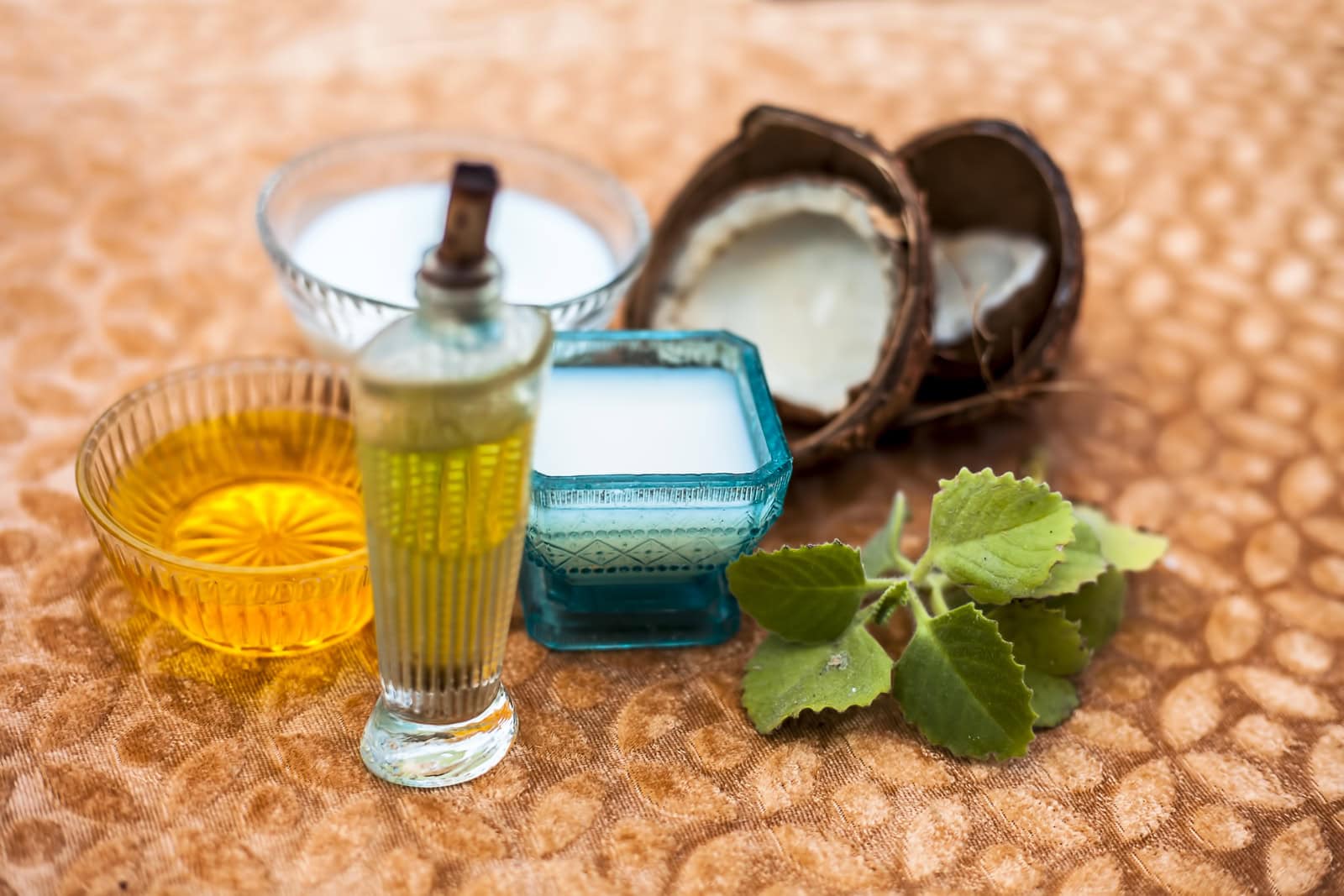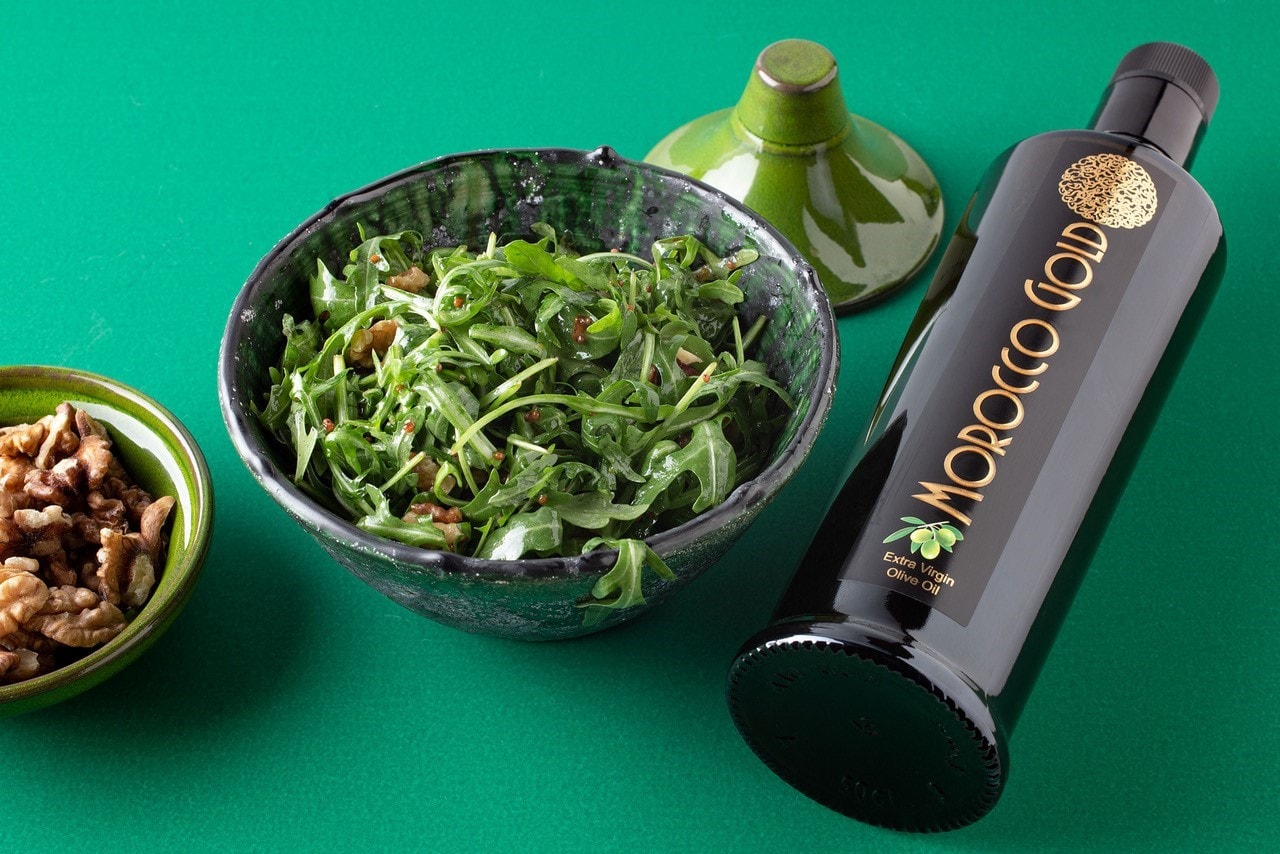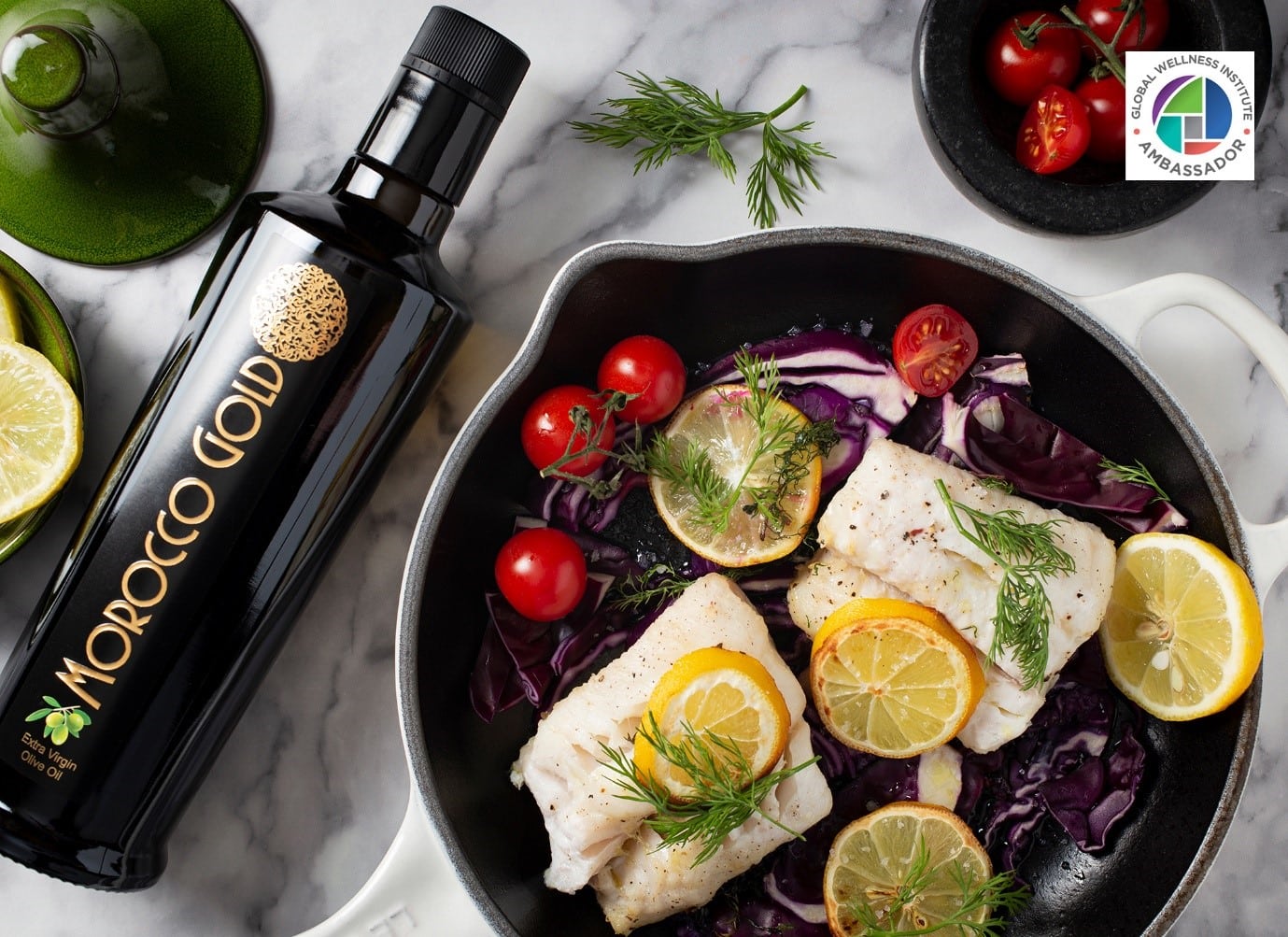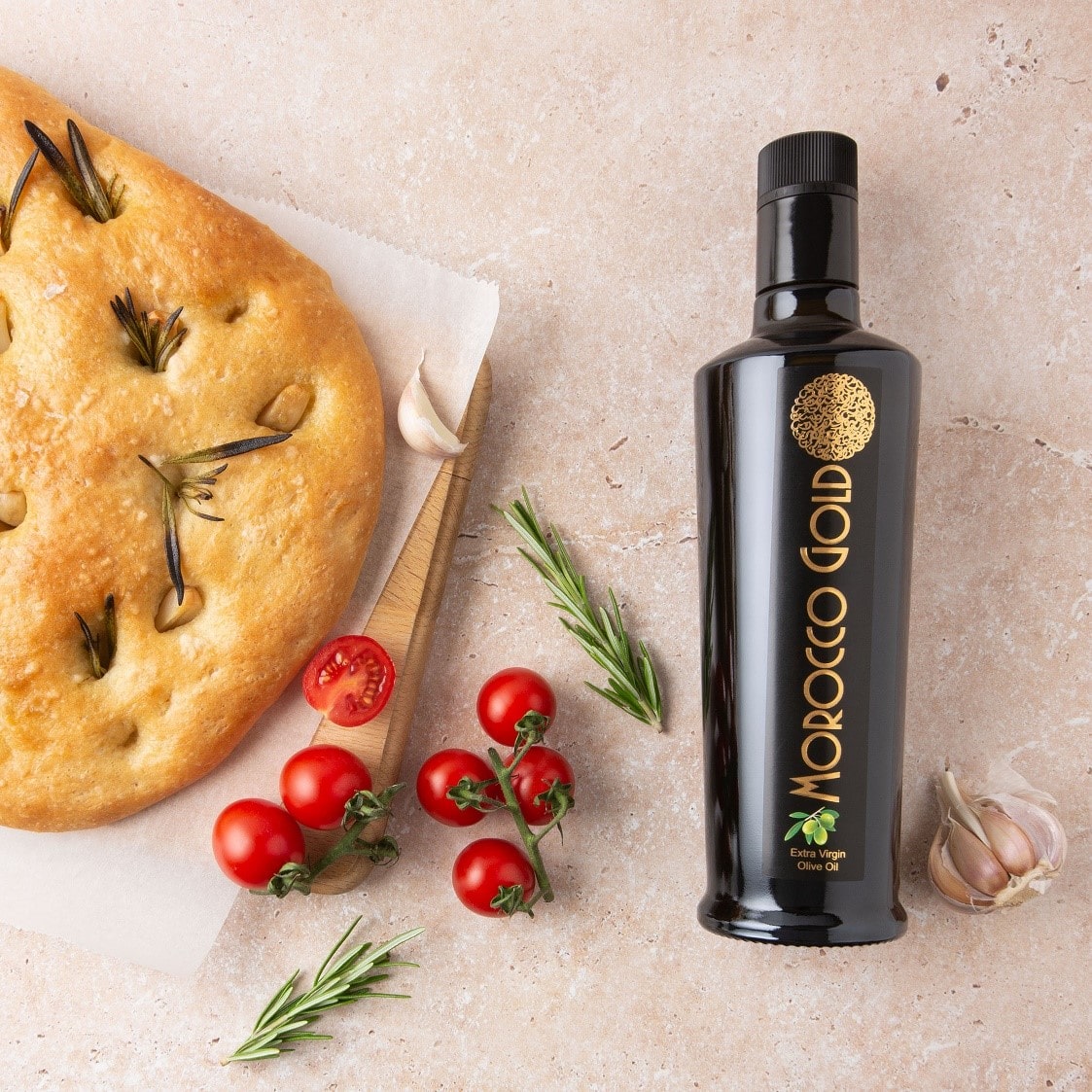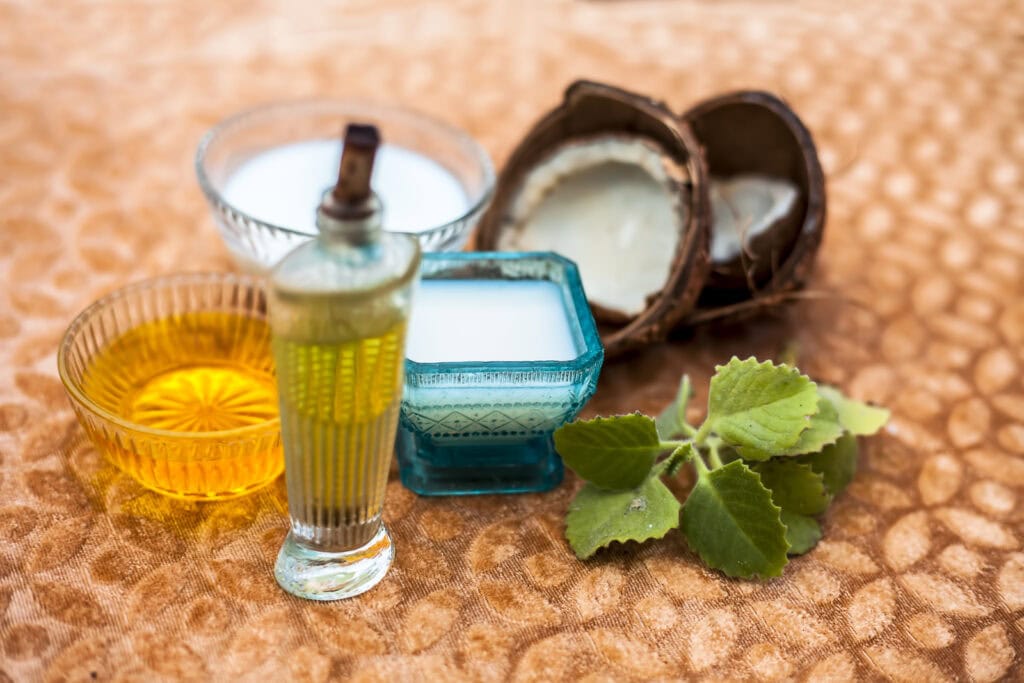
Summary
- Both oils are valuable additions to your diet, depending on your health, flavour and recipe preferences
- Both have a plethora of uses and benefits, both in cooking and for skin care and household aids
- The different types and refinement options can be utilised dependent on your specific requirements
Contents
- The rise of both popular oils for culinary and other uses
- A summary of the health benefits of olive oil and coconut oil
- The different uses in cooking for olive oil and coconut oil
- Types of olive and coconut oils
- Why Choose Morocco Gold Extra Virgin Olive Oil?
The rise of both popular oils for culinary and other uses
Coconut oil has, over recent years, developed a cult-like following, with benefits ranging from body fat reduction to heart disease prevention. But where’s the science behind this and what’s it based on?
There is plenty of research to suggest that other plant-based oils have advantages over their animal-derived counterparts, particularly when it comes to heart health. While no specific type should be considered the overall best, olive oil seems to have the edge when it comes to its versatility as a kitchen staple.
Olive oil is considered the base of a Mediterranean diet, and its much-publicised benefits are well documented.
Both olive oil and coconut oil are versatile and have numerous uses in cooking, health, beauty, and household applications.
Its uses in beauty and personal care are numerous, for example, olive oil can be used as a moisturiser to hydrate and soften skin when used as a body or facial oil. It conditions and strengthens hair, reducing frizziness and helping with split ends and can also gently cleanse and remove make up without irritating the skin.
Uses around the home include revitalising wood and stainless steel when used as a polish, lubricating squeaky door hinges and restoring moisture and shine to leather goods.
Elsewhere, coconut oil can be used to treat skin conditions such as eczema and dermatitis and is excellent when used as a moisturiser for general hydration and the treatment of dry patches.
It is known for nourishing and strengthening hair and often used as a deep conditioning treatment.
Along with the same household uses as olive oil, when mixed with essential oils, it can be used to create a natural insect repellent.
Both oils have unique properties that make them valuable for different applications and in different ways. Olive oil is often preferred for its cardiovascular benefits and rich flavour in culinary uses, while coconut oil is often favoured for its antimicrobial properties and wider versatility in beauty and personal care.
A summary of the health benefits of olive oil and coconut oil
Recent studies have shown that those consuming more than half a tablespoon of olive oil per day had a reduced risk of developing cardiovascular disease (CVD) compared to those using olive oil infrequently (less than once per month). Consuming more olive oil was also associated with a decreased likelihood of dying from CVD. Even slight increases in olive oil consumption, like replacing roughly a teaspoon of margarine or butter each day with a similar amount of olive oil, has health advantages.
Olives contain polyphenols – plant chemicals that may help reduce inflammation. Using virgin olive oil, which is extracted through mechanical rather than chemical means, is thought to offer higher levels of protective plant compounds than refined olive oils. Extra virgin olive oil (EVOO) is a product of the preferred, mechanical processing.
The polyphenols present in olives may also extend benefits to other areas of the body, like the brain. Along with other healthy dietary habits such as eating leafy greens, using olive oil when cooking has been associated with combating the decline in brain function that comes with age.
How does coconut oil compare?
Advocates of coconut oil highlight its content of medium-chain fatty acids, which are believed to offer distinct benefits due to their unique digestion process. These fats are purported to aid in weight loss and improve cholesterol levels, though such claims remain a topic of debate. Notably, lauric acid, the dominant fat in coconut oil, may behave differently than other medium-chain fats and might not provide the expected benefits.
In many traditional Asian diets, coconut oil plays a crucial role and is thought to contribute to better health outcomes, including reduced rates of heart disease and early mortality. These diets typically incorporate minimally processed coconut products, such as coconut flesh, which is also rich in nutrients like fibre. Additionally, the overall lifestyle in these Asian communities often includes higher consumption of fruits, vegetables, and fish, contributing to their generally healthier diet.
The different uses in cooking for olive oil and coconut oil
Olive oil is known as an absolute all-rounder when it comes to cooking and using in all types of dishes. Due to its high smoke point, it is ideal for sautéing, frying and baking.
Commonly used as a base for vinaigrettes and salad dressings, it also adds flavour as a marinade for meat, fish and vegetables, or can be used to drizzle over dishes to finish them off.
Rich in monounsaturated fats and antioxidants, it supports cardiovascular health and is also a useful anti-inflammatory as it contains oleocanthal.
Olive oil has satiating properties which helps with weight loss and maintenance and also promotes healthy digestion and constipation relief.
In the kitchen, coconut oil has similar versatilities due to its high smoke point and can also be used as a dairy-free alternative for butter and margarine. It adds a smooth and creamy texture and taste to smoothies and can be drizzled over sweet treats like popcorn for an added layer of flavour.
It’s antibacterial properties, due to its lauric acid content, are an added bonus and it can also offer an energy boost as it contains medium-chain triglycerides (MCTs) which provide a quick energy source.
There is not as much research to support it helping with weight loss as the studies carried out with olive oil, but its metabolism boosting properties make this a reasonable assumption.
Types of coconut and olive oils
Different types of olive and coconut oils can have different chemical compositions and health effects.
Both oils are available in refined or unrefined forms. This refers to how much the oils have been industrially processed and changed from their natural states.
Here are the common types:
Cold pressed and virgin oils
Virgin oils are unrefined oils obtained from fresh coconut kernel or olive fruits. The gold standard for unrefined oils is extra virgin oil made by mechanical extraction only, where the meat from the fresh coconut or the whole olive fruit is pressed to extract their oils, known as ‘cold pressed’.
This type of extraction means that the oils were not processed using chemical solvents or exposed to high temperatures — techniques frequently used in the making of refined oils.
Virgin and extra virgin oils retain the most flavour, aroma, and chemical and therapeutic properties of the coconut and olives.
Refined oils
Refined coconut oil is made from the dried coconut — also called copra — by crushing and pressing the dried meat of the coconut to extract the oils.
Manufacturers purify the copra by heating it to high temperatures and utilising additives.
Likewise, refined olive oil undergoes additional processing and exposure to high heat that reduces the natural flavours, aromas, and levels of health-promoting compounds in the final olive oil product. As a result of this greater processing, refined oils are more tolerant to high temperatures and may be better choices for deep-frying.
Other types
Pure or regular coconut and olive oils are a combination of virgin and refined oils, offering some benefits of virgin oils, such as flavour, aroma, and nutrients, along with the temperature-tolerant properties of the refined oils.
Pomace olive oil is another, albeit cheaper, type of olive oil made from the leftover pulp of the olives after the virgin oils have been extracted.
Pomace oil has the lowest concentration of organic compounds of all olive oil products and continues to be investigated in scientific research for its potential health benefits.
Why Choose Morocco Gold Extra Virgin Olive Oil?
Morocco Gold comes from a single source, from the Beni-Mellal region of Morocco. The olives are harvested by hand, early in the season whilst the fruit is still young and green. The olives are handled with care and attention throughout the harvesting and pressing process to ensure that only the best olives are used for Morocco Gold.
Uniquely, we include the results of our chemical analysis for acidity, peroxide and ultra-violet testing on each and every bottle of Morocco Gold so that our customers can see at a glance the guarantee of extra virgin olive oil quality.
Morocco Gold comes from the Picholine Marrocaine olive, which is characterised by its green, fruity flavour, with hints of almond and herbs, also its high level of polyphenols that give Morocco Gold its health enhancing qualities as well as it’s taste.
It does not have the ‘aggressive’ pungency of some extra virgin olive oils, giving Morocco Gold a well-balanced and satisfying finish. This also makes Morocco Gold highly versatile in how it can be used, either taken directly, dipping with bread, drizzling over salads, sautéing vegetables, the uses are limitless.
Have we helped you pick the best olive oil for you?
So, what is the best olive oil for you? It depends on your needs and preferences. If you’re looking for a versatile oil that can be used in both cooking and salads, an all-purpose olive oil would be a good choice. If you want an oil with a milder flavour that’s great for dipping bread or using in dressings, then go with an extra virgin olive oil. No matter which type of olive oil you choose, you can enjoy the many health benefits they offer.

